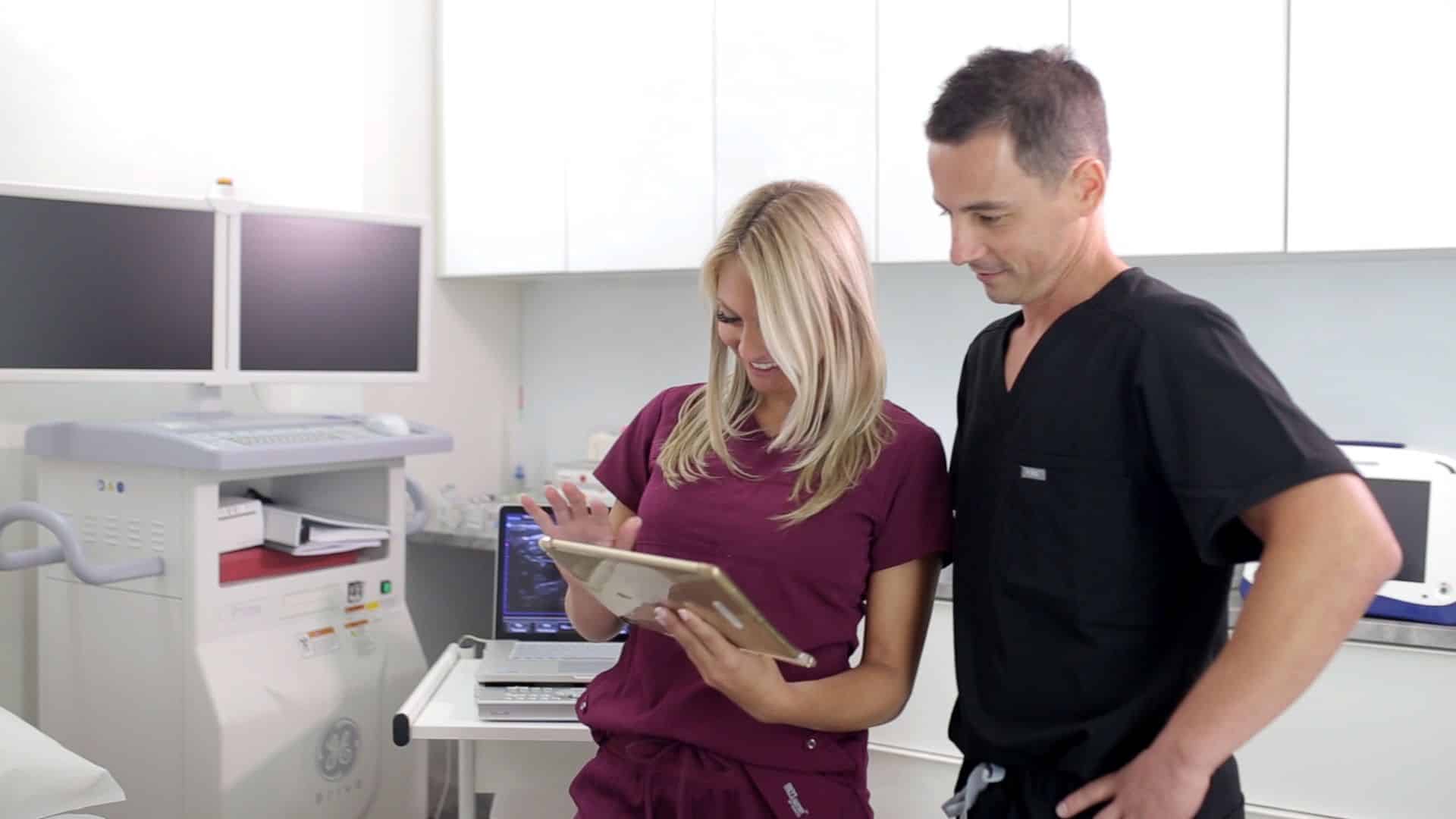Sciatica Pain Doctor In New Jersey Recommends 4 Lifestyle Improvements to Cope with Sciatica
August 25, 2021
Sciatica discomfort is easy to identify. It’s sharp and abrupt, starts in your lower back and goes down your thigh, following the sciatic nerve. Other symptoms include leg pain, numbness, and weakness. Although sciatica pain is widespread (it affects around 40% of the population), it can have a major impact on your everyday life. Many patients indicate that living with sciatica has made it difficult to enjoy hobbies and perform daily activities such as driving, exercising, and sleeping.
Since sciatica is rather frequent and can become such a serious problem for anyone, you’d think people would go to the doctor as soon as they see the first signs of pain. However, this is not the case. Most individuals avoid seeking medical help and prefer to suffer through the discomfort for months in order to avoid having to undergo surgery.

But here’s the thing. Herniated discs, which end up being the main cause of discomfort in 90% of sciatica cases, typically do not necessitate surgery. In fact, roughly 10% of herniated discs demand surgical treatment, so the chances are really small.
In most cases, a sciatica doctor will be able to keep your discomfort under control with minimally invasive sciatica treatment such as steroid injections. Additionally, they may recommend making some lifestyle adjustments to prevent additional pressure on the sciatic nerve and improve your condition. With the help of Dr George Hanna, a dedicated sciatica pain doctor in New Jersey, we will explore these lifestyle improvements in further detail below, since such minor changes can go a long way toward avoiding pain.

Watch your posture
If you are reading this while sitting in your office, chances are this is your posture at the moment: shoulders bent forward, neck stretched in front, and little to no lumbar support. You probably know this is not a comfortable position, yet you keep doing it anyway.
The average American spends 10-11 hours a day sitting. This can lead to a series of health issues, including back pain, increased risk of heart conditions, and even psychological stress. What causes all this?
The human body was designed to stand, walk, and perform activities while in an upright position, which makes sitting an unnatural posture that can put pressure on your sciatic nerve. For a short period, this won’t be an issue, but the repercussions of spending countless hours a day in front of a computer, on the couch, or at a desk can be very serious.
Sure, if you work an office job, you may not have a way to avoid sitting during work hours, but there are some adjustments you can make to prevent sciatica pain. Keep an eye on your posture, avoid slouching, and take frequent standing or moving breaks.
Quit smoking
We don’t need to tell you smoking can affect many parts of your body, including the lungs, stomach, heart, throat, teeth, and skin. If these are not good enough reasons to stop smoking, you may change your mind when you find out cigarettes can seriously harm your back as well.
Nicotine accelerates the deterioration of the spinal discs, increasing the risk for degenerative disc disease, which can cause sciatic discomfort. This substance also decreases blood flow, preventing proper circulation to the spine. This will not happen immediately, but it will increase the need for surgical treatments over time.
Even if you choose not to quit smoking and end up requiring surgery to address the pain, your doctor will still advise you to stop smoking in the weeks leading up to the procedure since nicotine raises blood pressure and hinders your body’s healing processes.
Start working out
Being physically active is beneficial in general, but it is essential if you deal with sciatica. For starters, regular exercise helps you maintain a healthy weight, which is essential for preventing herniated discs. Obesity, according to research, can erode the outer fibres in the back portion of the spinal discs, increasing the likelihood of back pain.
In addition to keeping your weight under control, working out can also strengthen the muscles in the back to provide better support for the spine and reduce pain.
However, consider the fact that certain exercises or routines can put too much pressure on the back, especially if you are already dealing with sciatic pain. Lifting weights is just one example of an activity that, if not done correctly, can end up hurting your back more than strengthening it. Also, with the sciatic nerve being the longest nerve in the body, there is an increased chance of pinching or stressing it while performing certain exercises.
Ask for the doctor’s recommendation as to which exercises are safe to perform in your condition, but chances are they will recommend walking, light aerobics, and jogging. If you are able you can also go swimming or cycling.
Avoid stress
Most treatment strategies primarily address the physical source of back pain, as external factors are usually the ones to blame for the pain. Although poor posture, an accident, or a chair that offers poor back support are the most common causes of sciatica, stress can also have a significant influence on your back.
If you ever observed your body when you are stressed, you’ve probably observed how it can affect you – muscles tensed up, clenched jaw, and a lot of pressure on your shoulders. Living under continual stress has an influence on both the mind and the spine, becoming a contributing cause to back pain.
Reducing stressful situations will benefit both your health and your mind, so try using mediation, yoga, breathing methods, or counselling to help you deal with the problem from the inside out.
In most cases, implementing these simple lifestyle changes can relieve common symptoms of sciatica and keep them from recurring. However, if the discomfort persists or increases, you should book an appointment with a board-certified sciatica pain doctor in New Jersey and find out what your treatment options are. Book an appointment in Paramus on Route 17, near the Paramus Park Mall, in Clifton, NJ, on Route 46 E, past the Ford dealership, in West Orange, near the Essex Country Club, and in Woodland Park clinic, on McBride Avenue, right next to Woodland Park Dialysis Center.
Book a Consultation
Scheduling a consultation with one of our pain treatment specialists is one of the best ways to determine the proper solution for pain relief.
Meet Our Team of Back Pain Specialists
All of our Pain Doctors in New Jersey are Harvard Trained and Board Certified in Pain Management

Back Pain Doctor Clifton & West Orange NJ
Dr. George Hanna
Dr. Hanna is a Harvard Trained back specialist in New Jersey and New York. He serves as Medical Director of Pain Management.

Back Pain Doctor Clifton & West Orange NJ
Dr. Laura Lombardi
Dr. Lombardi is a Harvard Trained back pain treatment doctor, currently seeing patients in Clifton and West Orange, New Jersey.

Back Pain Doctor Clifton & West Orange NJ
Dr. Shane Volney
Dr. Volney is a Harvard Trained back treatment doctor seeing patients in the NJ areas of Clifton & West Orange, and in NYC.

Back Pain Doctor Clifton & West Orange NJ
Dr. Michael Nguyen
Dr. Nguyen is Harvard Trained and Board Certified in Pain Management. His pain center accepts major medical insurances and Medicare.

Dr. George Hanna

Dr. Laura Lombardi
Dr. Lombardi is a Harvard Trained back pain treatment doctor, currently seeing patients in Clifton and West Orange, and Paramus New Jersey.

Dr. Shane Volney
Dr. Volney is a Harvard Trained back treatment doctor seeing patients in the NJ areas of Clifton & West Orange, and in NYC.

Dr. Michael Nguyen
Dr. Nguyen is Harvard Trained and Board Certified in Pain Management. His pain center accepts major medical insurances and Medicare.
